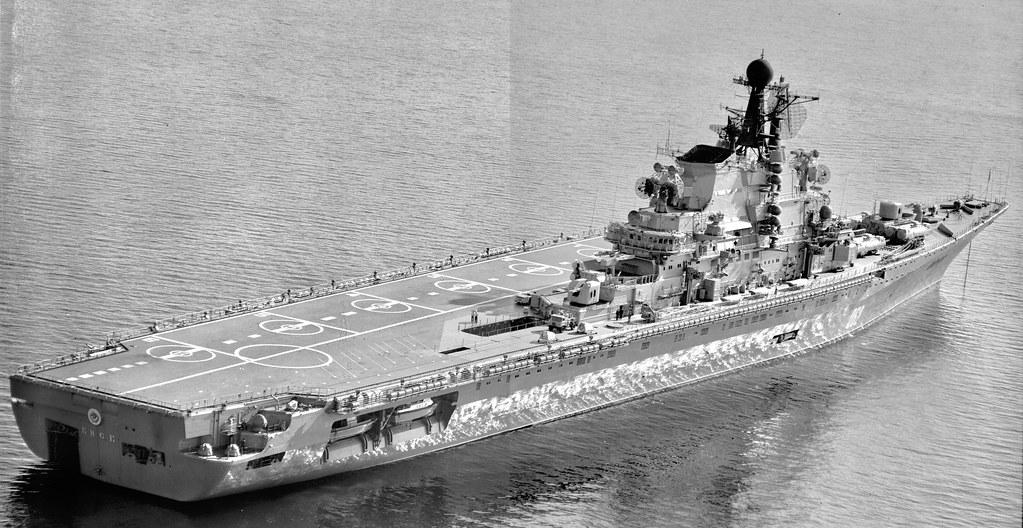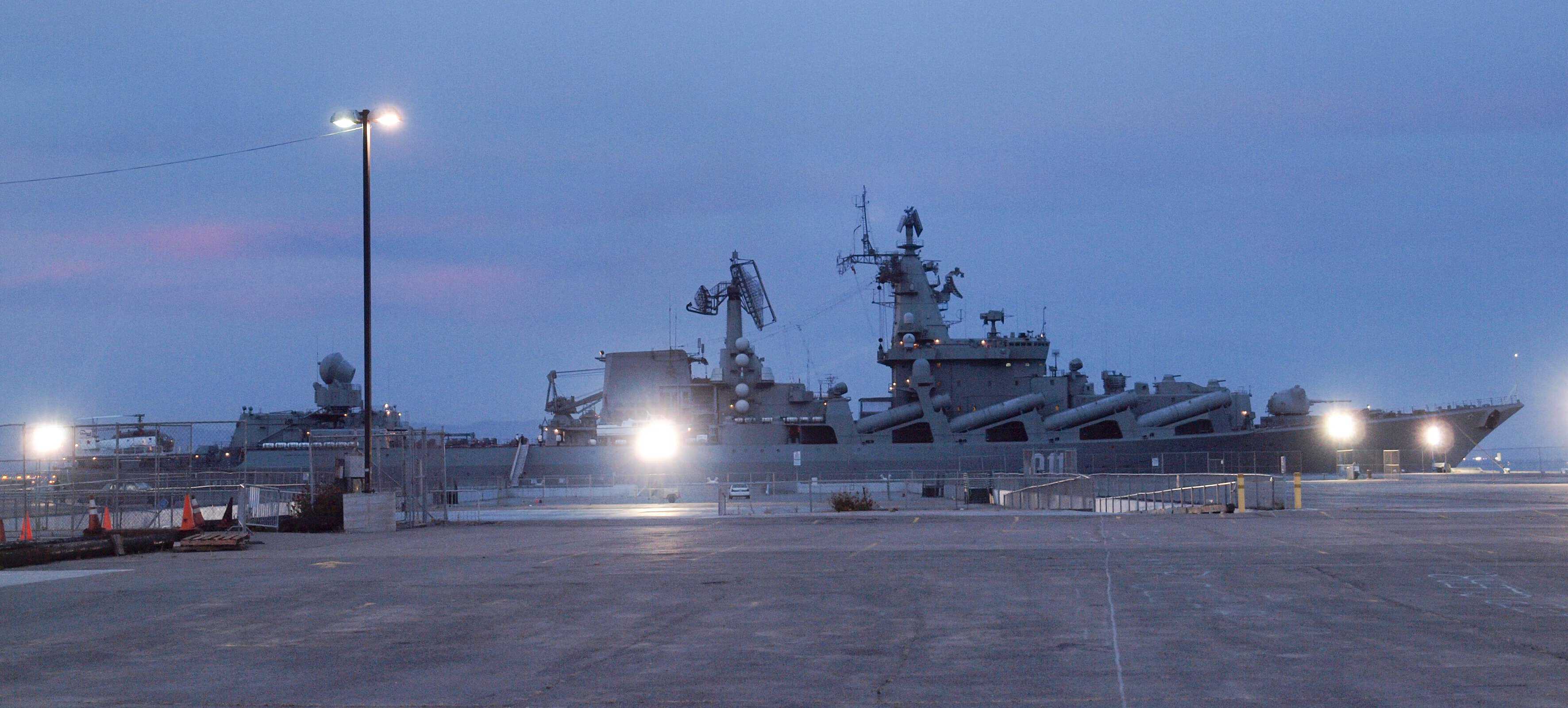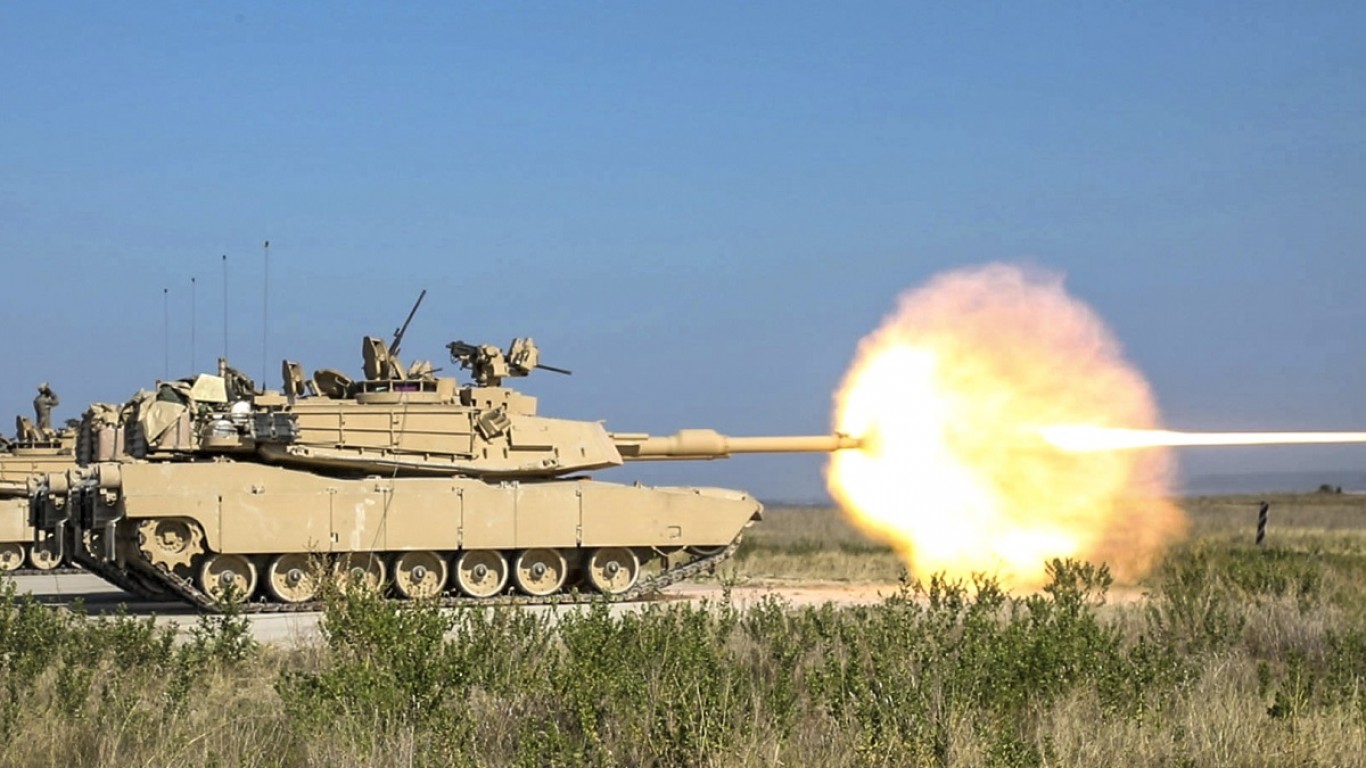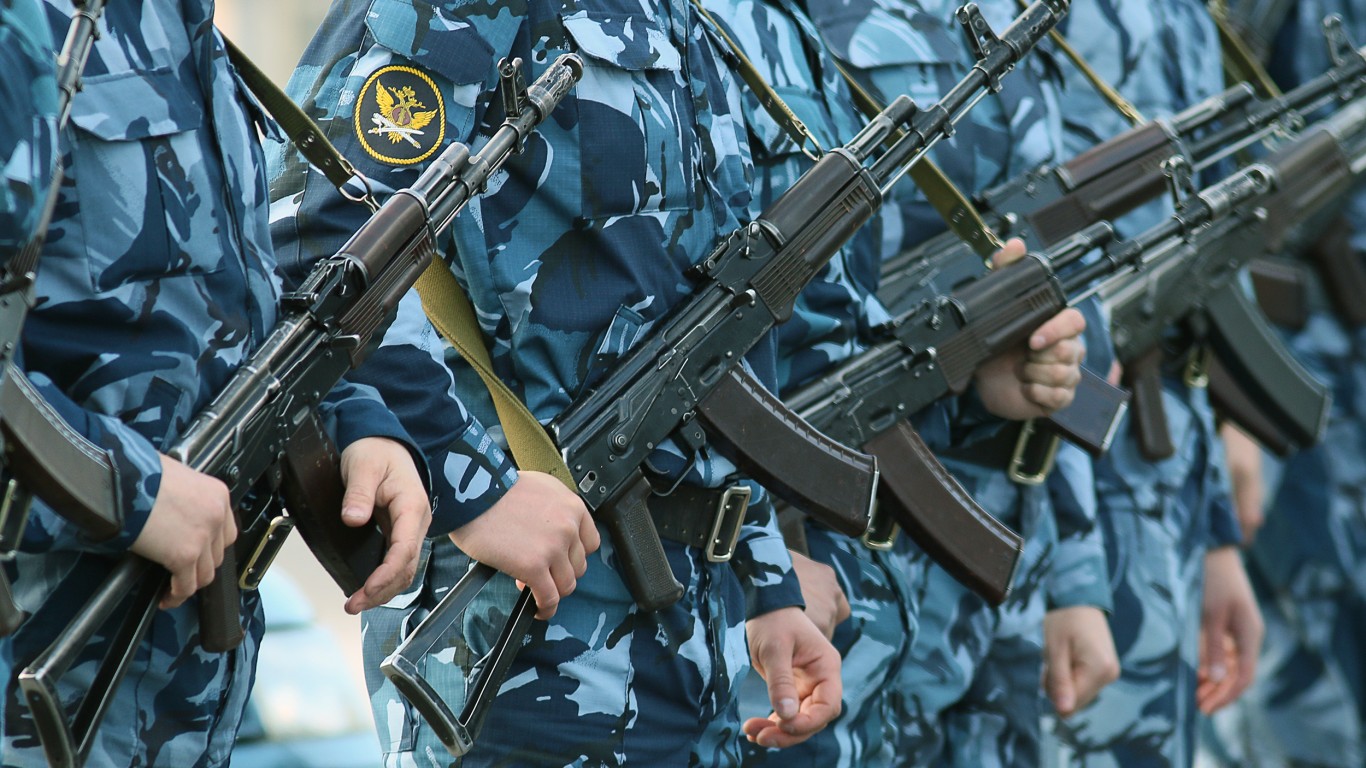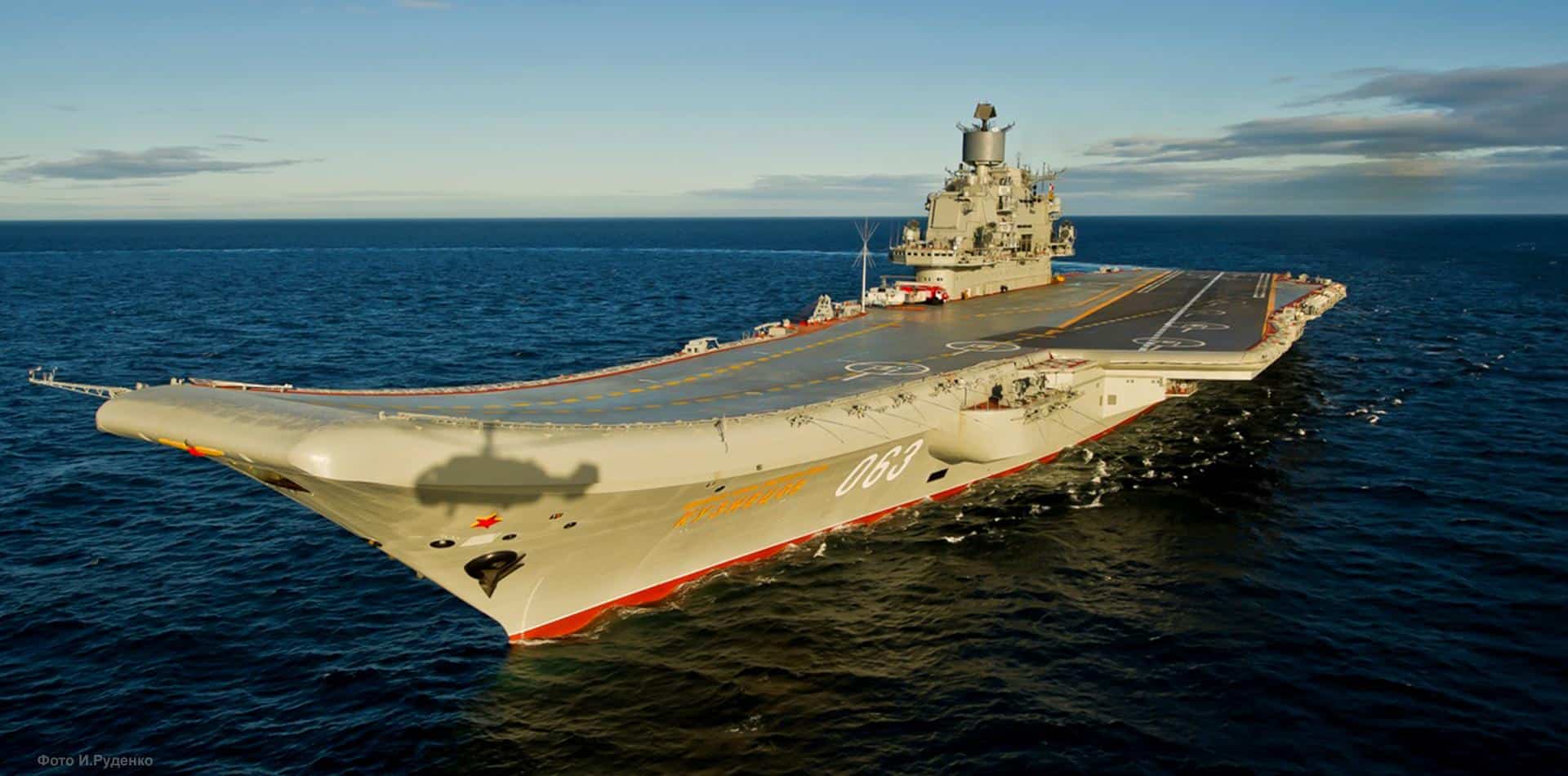
During World War II, the Soviet Union was relatively limited in terms of its naval power. In fact, the Red Army relied mainly on its ground forces to achieve success over the course of the conflict. However, after bearing witness to the Pacific Theater in the final years of the war, the Soviet Union resolved to muster a force of aircraft carriers to compete on the world stage. (This nation has the largest navy in the world.)
The Cold War era saw the advent of the Kiev-class aircraft carriers and later the Kuznetsov-class, which were primarily designed for anti-submarine warfare. There were a few other carriers that were manufactured during this time, but they did not reach the level of prominence of Kiev and Kuznetsov.
Here, 24/7 Wall St. is taking a closer look at the Russian and Soviet Navy over the years with an emphasis on aircraft carriers. To identify the Russian and Soviet Union aircraft carriers used throughout history, 24/7 Wall St. reviewed a catalog of aircraft carriers from Haze Gray, an online database of aircraft carriers. We ordered these aircraft carriers according to when they were commissioned. We included supplemental information regarding the class of carrier, aircraft housed, crew size, and propulsion.
Currently, the Admiral Kuznetsov is Russia’s only operational aircraft carrier. However, it has faced constant maintenance issues and economic constraints have only made this worse. It is capable of housing a series of Sukhoi and MiG fighter jets as well as a host of helicopters. (These are all the warship and submarine classes in the Russian Navy.)
Here is a look at all of Russia’s aircraft carriers throughout history:
Why Are We Covering This?
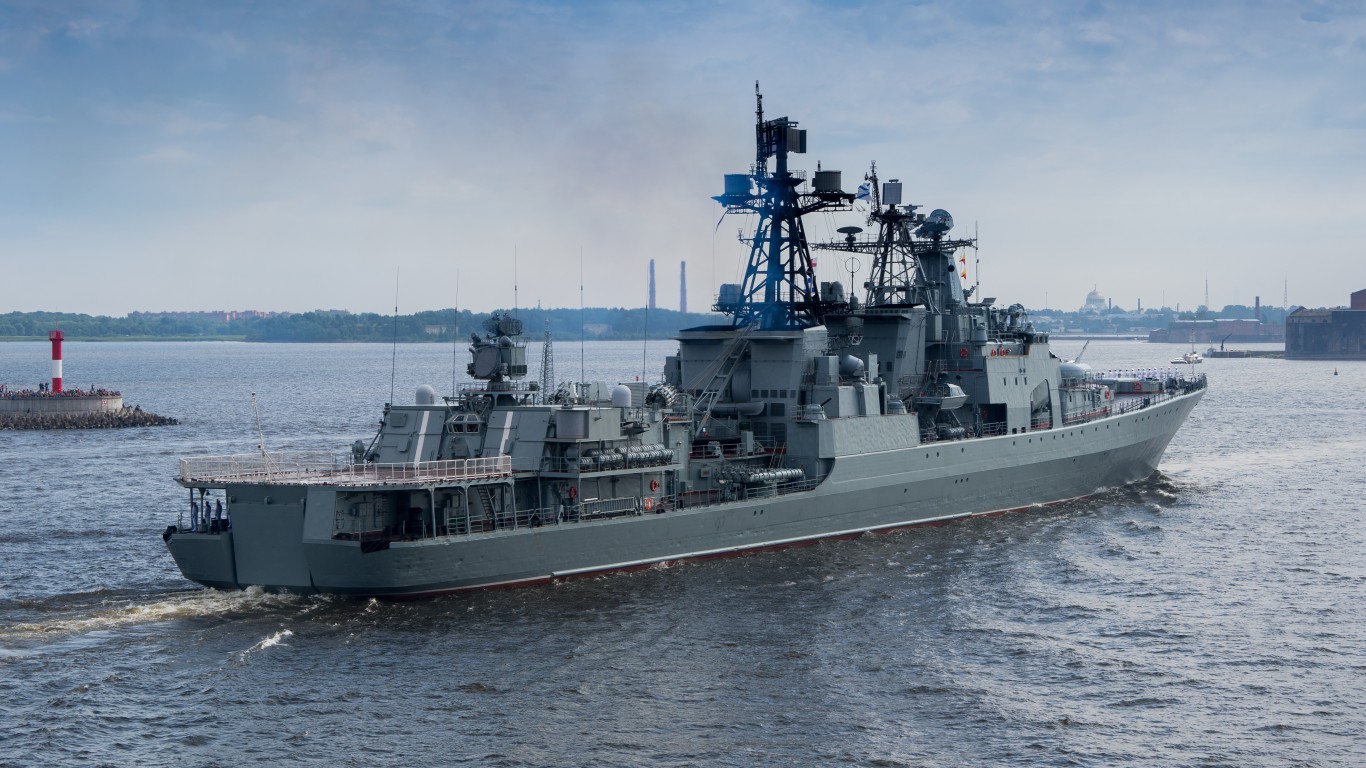
While Russia has a history of building and operating aircraft carriers, its current capabilities have been overshadowed by major naval powers like the United States. With current geopolitical tensions on the rise and an ongoing conflict in Ukraine, it’s important to have a grasp of military capabilities of other adversarial nations.
Moskva
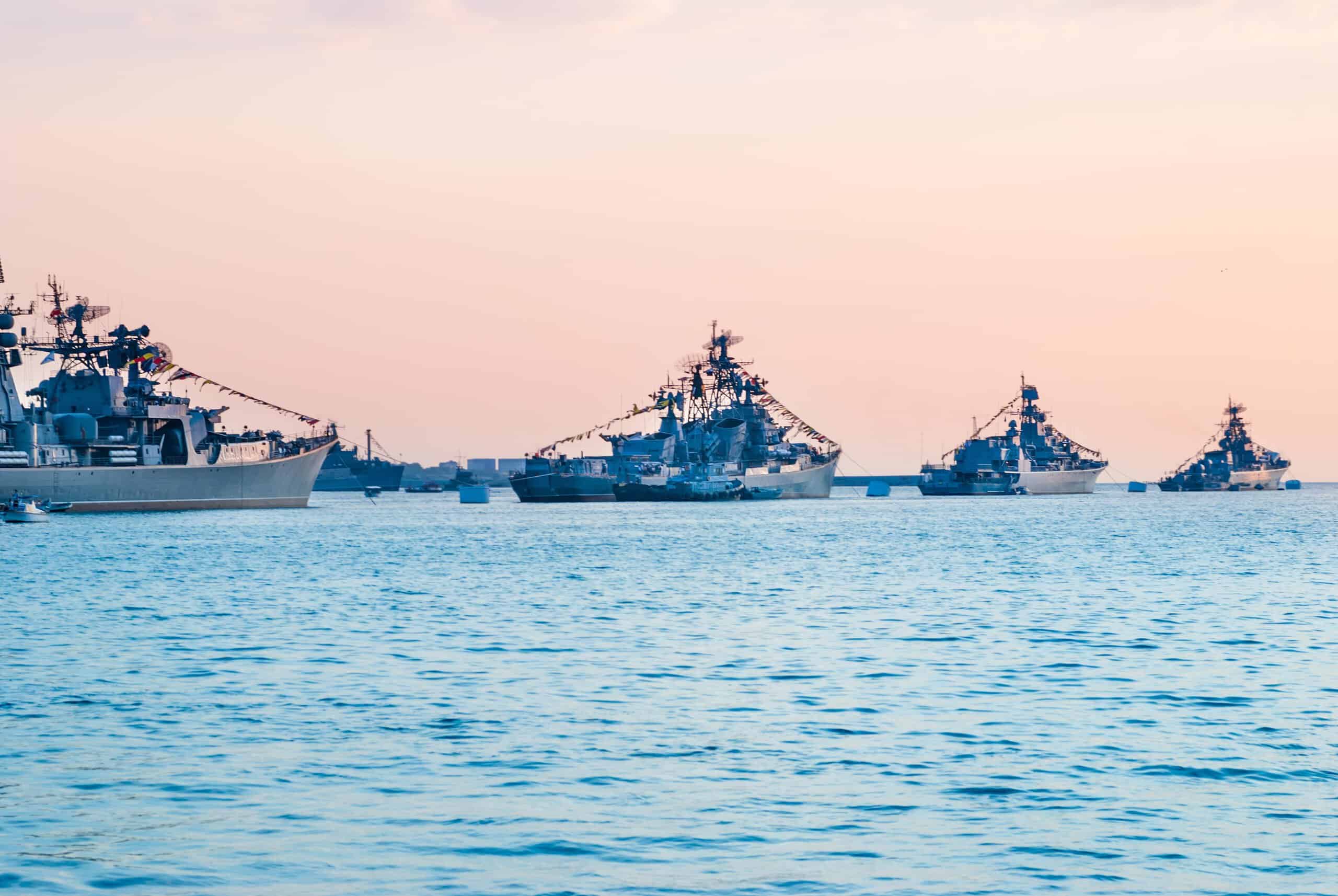
- Class: Moskva-class
- Type: Helicopter carrier
- Commissioned: 1967
- Aircraft: 14 helicopters
- Crew: 850
- Propulsion: Steam turbines, 4 boilers, 2 shafts, 100,000 hp, 30 knots
Leningrad
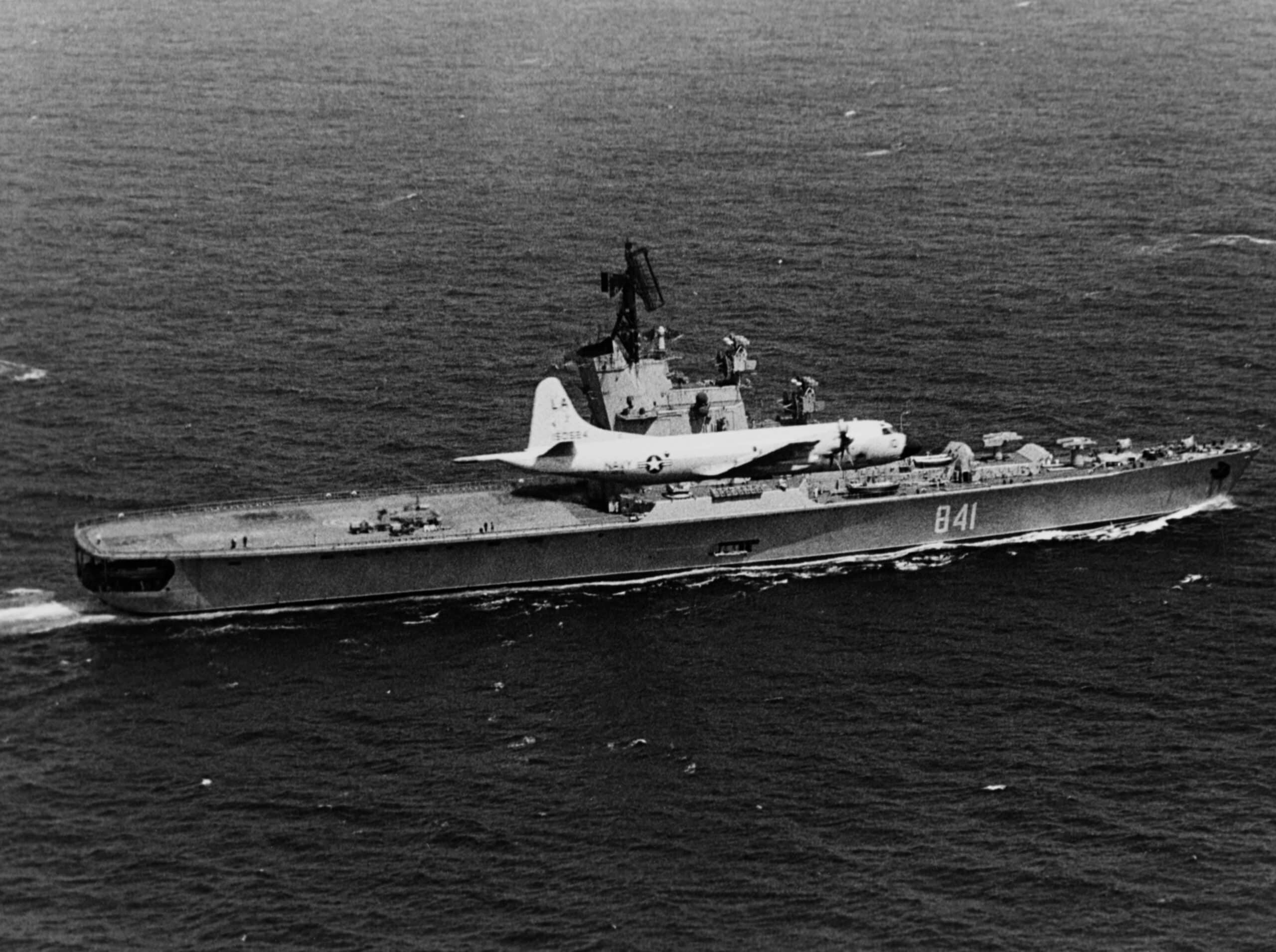
- Class: Moskva-class
- Type: Helicopter carrier
- Commissioned: 1969
- Aircraft: 14 helicopters
- Crew: 850
- Propulsion: Steam turbines, 4 boilers, 2 shafts, 100,000 hp, 30 knots
Kiev
- Class: Kiev-class
- Type: Aircraft cruiser
- Commissioned: 1975
- Aircraft: 31 VTOL
- Crew: 1,600
- Propulsion: Steam turbines, 8 boilers, 4 shafts, 200,000 hp, 32 knots
Minsk
- Class: Kiev-class
- Type: Aircraft cruiser
- Commissioned: 1978
- Aircraft: 31 VTOL
- Crew: 1,600
- Propulsion: Steam turbines, 8 boilers, 4 shafts, 200,000 hp, 32 knots
Novorossiysk
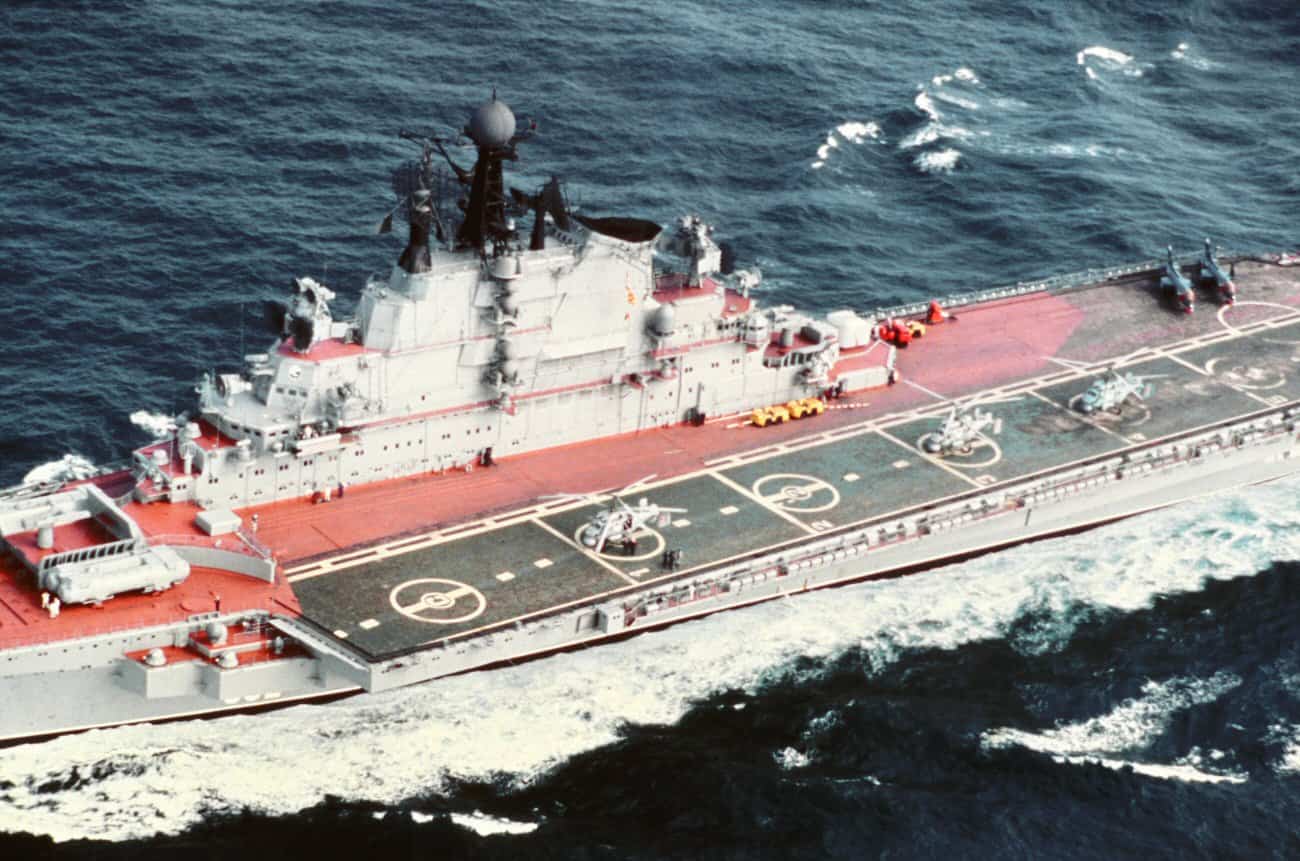
- Class: Kiev-class
- Type: Aircraft cruiser
- Commissioned: 1982
- Aircraft: 31 VTOL
- Crew: 1,600
- Propulsion: Steam turbines, 8 boilers, 4 shafts, 200,000 hp, 32 knots
Baku
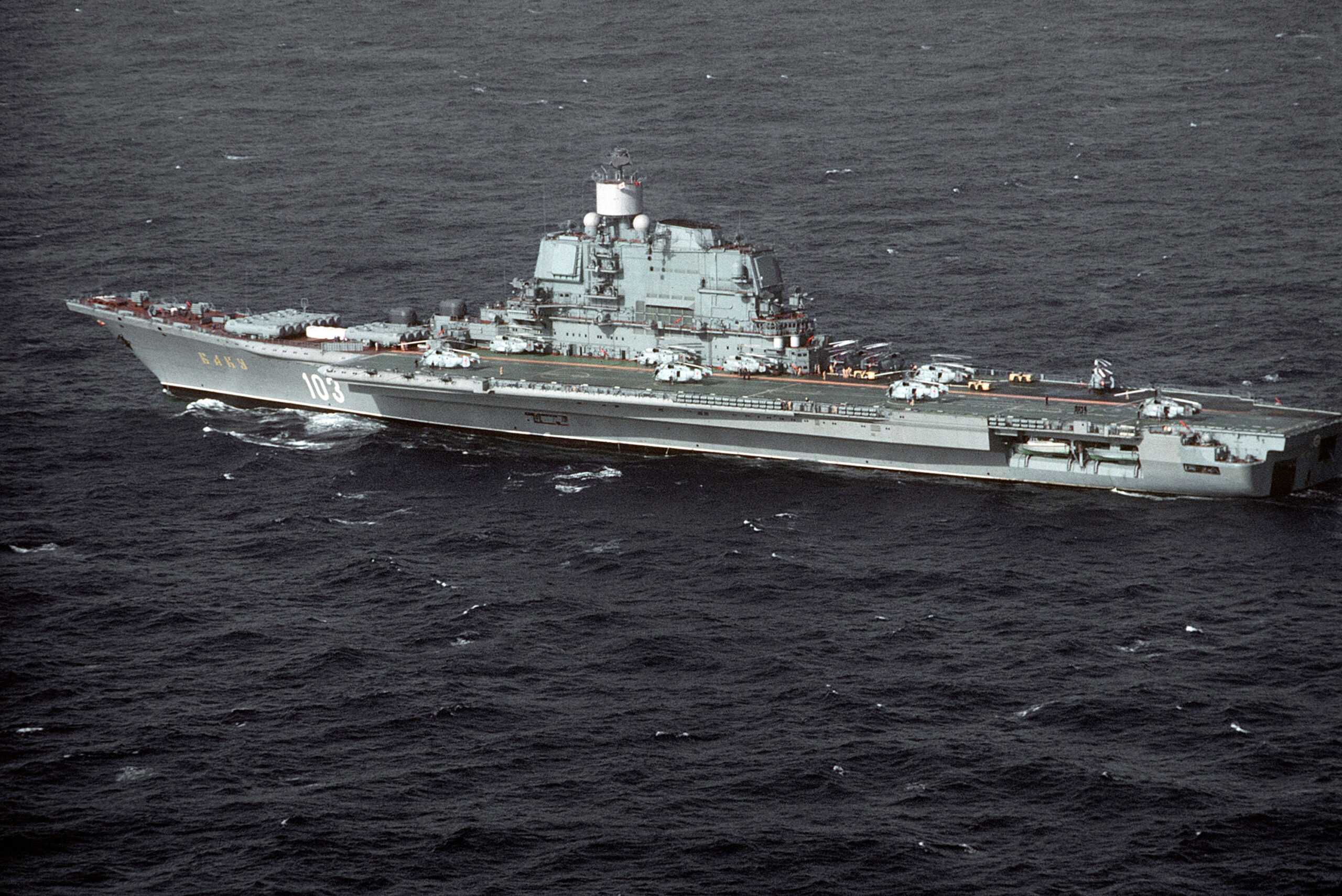
- Class: Kiev-class
- Type: Aircraft cruiser
- Commissioned: 1987
- Aircraft: 30+ VTOL
- Crew: 1,600
- Propulsion: Steam turbines, 8 boilers, 4 shafts, 200,000 hp, 31.5 knots
Kuznetsov

- Class: Kuznetsov-class
- Type: Aircraft cruiser
- Commissioned: 1990
- Aircraft: 30
- Crew: 1,500
- Propulsion: Steam turbines, 8 boilers, 4 shafts, 200,000 hp, 30 knots
Varyag
- Class: Kuznetsov-class
- Type: Aircraft cruiser
- Commissioned: 2012
- Aircraft: 30
- Crew: 1,500
- Propulsion: Steam turbines, 8 boilers, 4 shafts, 200,000 hp, 30 knots
Ulyanovsk

- Class: Ulyanovsk-class
- Type: Supercarrier
- Commissioned: Scrapped
- Aircraft: 80
- Crew: N/A
- Propulsion: Steam turbines, 4 reactors, 4 shafts, 200,000 shp, 30 knots
Take Charge of Your Retirement In Just A Few Minutes (Sponsor)
Retirement planning doesn’t have to feel overwhelming. The key is finding expert guidance—and SmartAsset’s simple quiz makes it easier than ever for you to connect with a vetted financial advisor.
Here’s how it works:
- Answer a Few Simple Questions. Tell us a bit about your goals and preferences—it only takes a few minutes!
- Get Matched with Vetted Advisors Our smart tool matches you with up to three pre-screened, vetted advisors who serve your area and are held to a fiduciary standard to act in your best interests. Click here to begin
- Choose Your Fit Review their profiles, schedule an introductory call (or meet in person), and select the advisor who feel is right for you.
Why wait? Start building the retirement you’ve always dreamed of. Click here to get started today!
Thank you for reading! Have some feedback for us?
Contact the 24/7 Wall St. editorial team.
